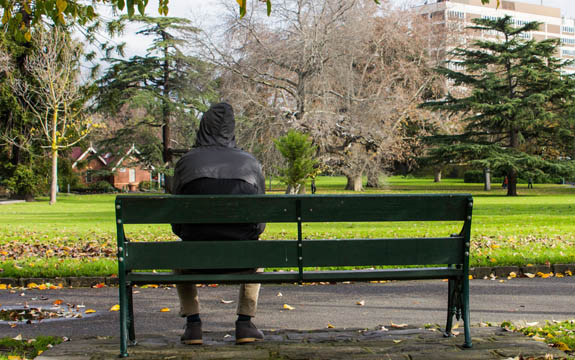Loneliness can lead to poor mental health

In Summary
- Loneliness can lead to depression, social anxiety and paranoia
- There is a significant difference between loneliness and depression
- Interventions and treatments for loneliness are needed
New research from Swinburne has found that loneliness can lead to depression, social anxiety and paranoia.
The study, which surveyed more than 1000 participants, found a strong link between social anxiety and loneliness. Those suffering from social anxiety also have an increased chance of future loneliness.
Lead researcher and clinical psychologist Dr Michelle Lim, from Swinburne’s Brain and Psychological Sciences Research Centre, says treating social anxiety can reduce the occurrence of loneliness in the future and improve overall mental health.
“If loneliness is not addressed, a person is more likely to experience depression, social anxiety and paranoia in the next six months,” Dr Lim says.
It is often assumed that loneliness is part of depression, but there is a significant distinction between the two. Loneliness can be defined as a set of negative feelings that can arise when there’s a difference between desired and actual social relationships, while depression is related to how one feels more generally.
Loneliness is thought to arise when an innate need to belong to a group is not met.
According to Dr Lim, those suffering from social anxiety are likely to avoid social interactions that could reduce loneliness.
“We are not designed to be alone. We are a social species,” Dr Lim says.
“Loneliness can also lead to poorer physical health, including increased chance of developing Alzheimer’s, have poorer cardiovascular health and poorer immunity.”
Interventions and treatments for loneliness that identify and address social anxiety are sorely needed.
Dr Lim suggests several tips for reduce loneliness including;
- Recognise loneliness and understand that it’s a signal to do something different to what you usually do.
- Try positive ways of interacting with others that includes healthy food, exercise and fresh air.
- Show positive body language as it shows others that you interested in what they’re saying
- A therapist or counsellor can help you break out of the vicious cycle of loneliness. Your doctor or GP is usually the first person that can assist you.
Dr Lim is currently working on an app to combat loneliness in young people with serious mental illness and university students who are prone to feelings of loneliness.
Featuring original content, the app is designed to promote positive social behaviour in a fun and engaging way. It is set to launch in November 2016.
This study was completed in conjunction with Washington University in St. Louis, University of Melbourne and Australian Catholic University.
If you are experiencing depression or anxiety, support is available by calling beyondblue on 1300 22 4636.

